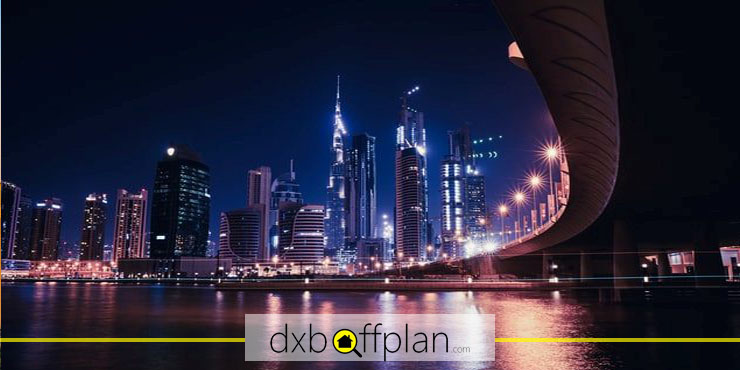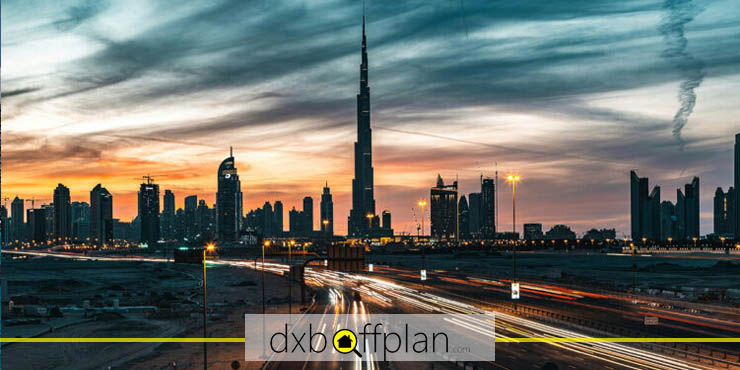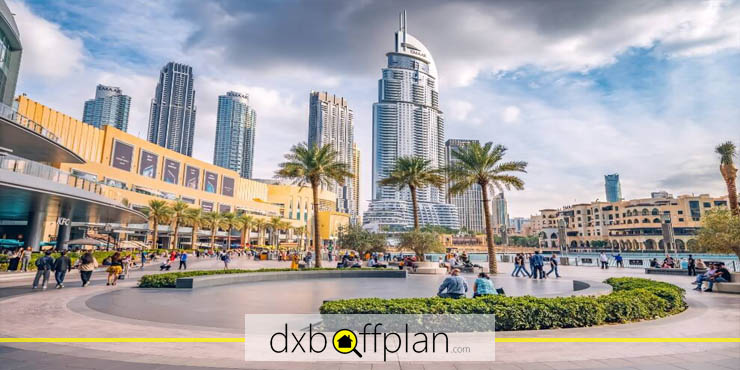دبي تعتمد أكبر ميزانية في تاريخها للسنوات الثلاث 2025-2027
إعتمدت حكومة دبي ميزانية تاريخية للسنوات الثلاث 2025-2027، تمثل أكبر مخصص مالي في تاريخها. تعكس هذه الميزانية التزام دبي الطويل بالنمو المستدام وتحسين الخدمة العامة، مع توقعات الإيرادات بقيمة 302 مليار درهم وتوقعات الإنفاق بقيمة 272 مليار درهم. وقد أعلن الشيخ محمد بن راشد آل مكتوم، نائب رئيس الدولة رئيس مجلس الوزراء حاكم دبي، على حسابه على وسائل التواصل الاجتماعي عن الميزانية حيث أكد على البنية التحتية والتنمية الاجتماعية والاستقرار المالي. ونظراً للطلب المتزايد على الإسكان وتأثيره على أسعار العقارات في دبي، فقد تم تخصيص جزء كبير من الميزانية لتطوير البنية التحتية السكنية وتوفير مرافق محسنة للمواطنين.
أبرز النقاط في ميزانية دبي 2025-2027
التركيز على تطوير البنية التحتية
لقد تم تخصيص ما يصل إلى 46٪ من ميزانية دبي لعام 2025 لمشاريع البنية التحتية الضخمة، بما في ذلك الطرق والجسور والطاقة وأنظمة الصرف الصحي. والتي ستساعد المشاريع في تسهيل النمو الحضري السريع في دبي والمشاريع التطويرية المستقبلية، بما في ذلك المطار الجديد.
الاستثمار في الخدمات الاجتماعية والإسكان
كما تم تخصيص 30٪ من ميزانيتها للقطاعات ذات الأولوية مثل الصحة والتعليم والتنمية الاجتماعية والإسكان. وتدرك الحكومة الزيادة في الطلب على الإسكان والضغوط التي تمارسها على أسعار العقارات، وبالتالي فهي منخرطة في تطوير البنية التحتية السكنية بهدف توفير تسهيلات أكبر للمواطنين.
الاستقرار طويل المدى من خلال الاستدامة المالية
أكد الشيخ محمد أن دبي ملتزمة بإدارة شؤونها المالية على أساس مستدام وبالتالي تستهدف فائضًا تشغيليًا بنسبة 21٪ من إجمالي الإيرادات في العام المقبل. وبالإضافة إلى ذلك، تم إطلاق محفظة جديدة للشراكة بين القطاعين العام والخاص بقيمة 40 مليار درهم إماراتي لتأمين المرونة المالية والازدهار الاقتصادي للأجيال القادمة.
تفاصيل الميزانية والأهداف طويلة المدى لعام 2025
- توقعات الإيرادات: تتوقع دبي إيرادات بقيمة 97.66 مليار درهم إماراتي في عام 2025.
- خطط الإنفاق: تبلغ النفقات المتوقعة لنفس العام 86.26 مليار درهم إماراتي.
- الاحتياطيات العامة: يهدف الاحتياطي العام البالغ 5 مليارات درهم إماراتي من الإيرادات إلى دعم مبادرات التنمية المختلفة والمساهمة في تحقيق رؤية دبي 2030.
وتواصل ميزانية دبي إعطاء الأولوية لتوسيع الخدمات الاجتماعية ورفع المعايير في البنية التحتية والثقافة والتعليم والرعاية الصحية. وتوضح برامج مثل أجندة دبي الاجتماعية 33 واستراتيجية التعليم 2033 تفاني دبي في التقدم الاجتماعي والتعليمي.
على طريق رؤية 2030 وقيادة الاقتصاد الرقمي
تتخذ حكومة دبي خطوات واعية نحو تنفيذ خطتها الاستراتيجية دبي 2030 والتي تهدف إلى تحويل الإمارة إلى عاصمة عالمية للاقتصاد الرقمي. وتدفع الخطط الطموحة دبي إلى مواصلة تطوير البنية التحتية الرقمية وتعزيز الخدمات العامة وتشجيع البحث العلمي بما يتماشى مع الأهداف طويلة المدى للتنمية المستدامة وتحسين الرفاهية الاجتماعية.
الاستقرار المالي والاستثمارات المستقبلية
ومن خلال سياستها المالية المنضبطة، تركز دبي على الاستقرار المالي الذي يشجع دبي على زيادة استثماراتها المستقبلية. وقد أنشأت صندوق احتياطي عام للاستدامة المالية وخصصت 6% من ميزانيتها للبحث العلمي والتميز الحكومي والإبداع والابتكار في قطاعات الخدمات العامة لتشكيل ثقافة الأداء العالي والابتكار.
تخصيص ميزانية الحكومة لعام 2025: التركيز على التنمية الاجتماعية والبنية التحتية
يسلط توزيع ميزانية 2025 الضوء على الأولويات الرئيسية لرفاهية المجتمع، مع التركيز القوي على تحسين نوعية الحياة والأهداف طويلة المدى المتوافقة مع الرؤية الاستراتيجية لدولة الإمارات العربية المتحدة.
- التنمية الاجتماعية: 30٪ من الميزانية تذهب إلى الخدمات الاجتماعية، مع التركيز على الإسكان والرعاية الصحية والتعليم والمرأة والطفل والأسر ذات الدخل المنخفض ورعاية المسنين وأصحاب الهمم ودعم الرياضة والشباب.
- الأمن والعدالة والسلامة: 18٪ من الميزانية مخصصة لهذا القطاع، اعترافًا بدورها كركيزة أساسية لمجتمع دبي.
- البنية التحتية والبناء: سيتم استثمار 46٪ من الميزانية في مشاريع البناء، بما في ذلك الطرق والأنفاق والجسور وشبكات النقل ومرافق الطاقة المتجددة.
- التطوير العلمي والابتكار: 6٪ من الميزانية مخصصة للبحث العلمي والتميز الحكومي والإبداع والخدمات العامة لتعزيز ثقافة الابتكار والإنجاز العالي.
الالتزام بالتنمية المستدامة والتقدم الاقتصادي
تؤكد ميزانية دبي لعام 2025 على التزام الإمارات بالتنمية المستدامة والرفاهية الاجتماعية والتقدم الاقتصادي. ويعكس التخصيص الاستراتيجي للأموال عبر القطاعات المختلفة هدف الحكومة لتحسين نوعية حياة المواطنين وتعزيز مكانة دولة الإمارات على المستوى العالمي.
كفاءة الإنفاق وتلبية المتطلبات
وقد صرح عارف عبد الرحمن أهلي، المدير التنفيذي لقطاع التخطيط والموازنة العامة في مالية دبي:
“كانت رؤية الشيخ محمد بن راشد آل مكتوم، بدعم من توجيهات الشيخ حمدان بن محمد بن راشد آل مكتوم، بمثابة القوة الدافعة للتخطيط المالي السليم. وبفضل توجيهاتهم، تمكنا من وضع خطة مالية غير مسبوقة لمدة ثلاث سنوات، وهي الأكبر في تاريخ الإمارة”.
كما صرح أحمد علي مفتاح، المدير التنفيذي بالإنابة لقطاع الحسابات المركزية في مالية دبي:
“لقد تم تصميم دورة الميزانية الثلاثية 2025-2027 بدقة لدعم استراتيجية دبي للتحول الرقمي. “ومن بين هذه المبادرات رقمنة قنوات دفع الرسوم الحكومية لتبسيط معاملات العملاء وتعزيز رضاهم. كما أطلقنا نظام التقسيط الذكي للرسوم الحكومية ونقوم بتجربة نظام الدفع البيومتري لبصمة الوجه وبصمة اليد، بالتعاون مع العديد من الجهات الحكومية”.
مستقبل المعاملات الرقمية والاستراتيجية اللا نقدية
تم تطوير دورة الموازنة 2025-2027 لتسهيل مبادرات التحول الرقمي في دبي بالدعم الكامل لرقمنة جميع المدفوعات الحكومية لتوفير معاملات سهلة وزيادة رضا العملاء. كما قدمت نظام تقسيط ذكي لجميع أنواع الرسوم الحكومية، وتعمل على تجربة نظام الدفع البيومتري لتلقي معاملات سلسة.
وفي عام 2023، تم إجراء 97٪ من معاملات حكومة دبي عبر الانترنت. وتعني استراتيجية دبي اللانقديةالوصول إلى 90٪ من المعاملات اللانقدية في كل من القطاعين العام والخاص بحلول عام 2026، حيث تبرر دبي اسمها بالريادة في الاقتصاد الرقمي.
الخلاصة
إن ميزانية دبي القياسية للفترة من 2025-2027 هي خطوة كبيرة نحو التنمية الاجتماعية والاقتصادية. وتُعد الخطة الطموحة، التي تركز على البنية التحتية والخدمات الاجتماعية والاقتصاد الرقمي القوي، دليلاً قوياً على تصميم دبي على تحقيق رؤيتها لعام 2030 ووضع معيار عالمي للنمو المستدام والمرونة المالية.
المصدر: https://www.propertynews.ae










